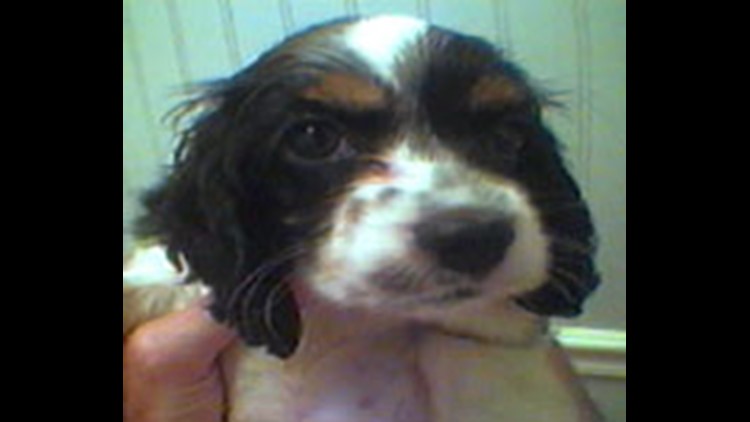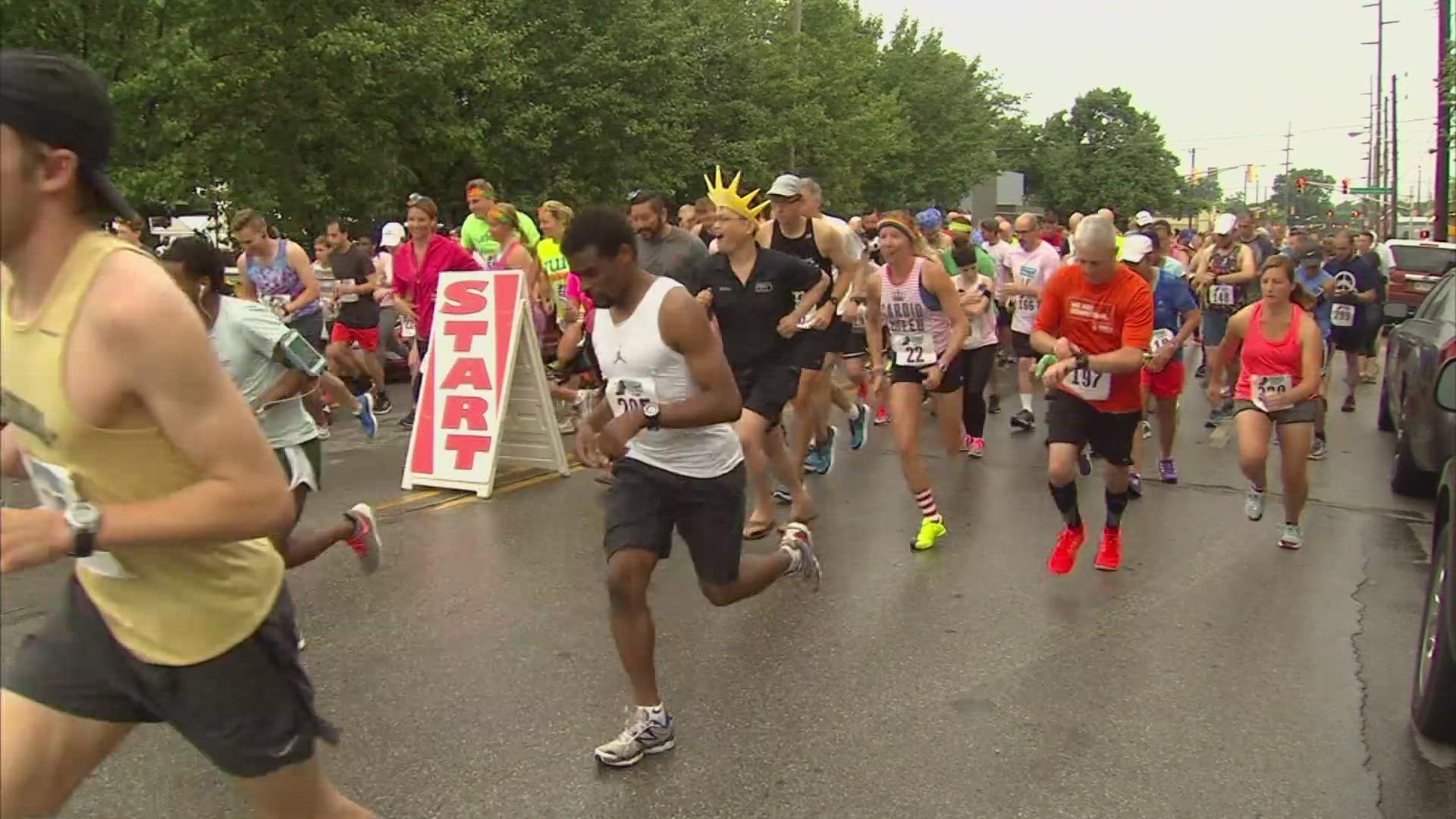Bob Segall/13 Investigates
Have you ever wondered where pet shops get all those cute little puppies? We did, and what 13 Investigates discovered is something many pet stores do not want you to see. We went undercover to help you understand how this big business operates and to show you exactly where most of these dogs come from.
They are cute, cuddly companions just waiting for a new family. But where do pet store puppies come from?
"Our puppies come from local breeders who are USDA-licensed," a sales clerk told me during a recent visit to a pet shop. She was truthful. At the same time, she was not telling the whole story.
What most pet shops do not tell customers is their abundant supply of puppies comes from a well-hidden puppy pipeline. That pipeline is a big business made possible by commercial breeding, a process that requires many dogs to live their adult lives confined to a cage.
13 Investigates spent eight months tracking the state's internal puppy pipeline, and it begins in a place few people would expect.
Daviess County is a quiet farming community two hours southwest of Indianapolis, and it is also the puppy breeding capital of Indiana. Towns such as Odon and Loogootee are home to dozens of Amish families who operate large-scale breeding kennels.
The kennels are not advertised. Many are tucked behind picturesque farm houses well away from publicly-traveled dirt roads. They are commercial breeding operations and each year, the facilities supply local pet shops with thousands of puppies.
During our visits to Daviess County, 13 Investigates found cage after cage filled with dogs whose sole purpose is to breed puppies. Many of the facilities cage between 60 and 200 dogs and, together, they offer pet stores nearly any breed desired.
From the breeding farms, puppies are loaded inside small cages in a cargo van to be delivered to pet stores which, in some cases, are located hours away. Which pet stores the puppies are delivered to is not a big concern to the breeders.
"When they leave here, we've got no idea where they're going," said one of the breeders.
The breeders do not know the destination of their puppies because the sales and deliveries are controlled by a middleman or "broker." The most prominent broker in Daviess County is Levi Graber, who provides puppies to Safari Pets (PDF) and Uncle Bill's Pet Centers in Indianapolis and Pass Pets in Bloomington. Graber does not like strangers asking questions about the puppy pipeline.
When 13 Investigates went to the home of a breeder in Odon, Ind., to ask about details of her commercial kennel, Graber met WTHR photojournalist Bill Ditton and me in front of the home, blocked our news vehicle from leaving the driveway and called sheriff's deputies to have us arrested. Two Daviess County deputies responded to the complaint and declined to issue charges. "You obviously didn't do anything wrong," said one of the deputies.
At that point, Graber told us "hit the road, and I mean do it immediately." He then followed us for more than an hour and filed another complaint with the sheriff's department as we drove around Daviess County gathering more information for our investigation.
Several days later, the puppy broker apologized.
"I should not have treated you that way," Graber said during a face-to-face meeting in Indianapolis. "That was not a smart thing to do, but we are very skeptical when people start asking lots of questions."
Graber said his breeders have nothing to hide. He said they maintain clean and safe facilities, regularly call in a veterinarian to inspect the animals, and "do whatever's necessary to make sure the dogs are happy."
It is important to point out that all of the dogs and puppies we saw appeared to be well fed and in good health. Still, Graber says the public is not welcome at the breeding facilities. "When strangers come in, it means a lot of stress for both the dogs and the breeders," he explained.
There is another important reason the puppy pipeline is not open for public viewing: it would create a public image problem for pet stores.
"People's perception of this is not going to be good," said Joe Street, vice president of Uncle Bill's Pet Centers, the largest pet store chain in central Indiana. "I have no problem with what you found, but most people will not like seeing that."
Uncle Bill's sells about 2,500 puppies a year, according to Street, and most of those come from Levi Graber and his network of Amish breeders.
"Without a doubt, unequivocally, I can state that they are the best quality puppies that we have been able to find," Street said. At the same time, he admits many of his customers will not like seeing the reality of commercial breeding, which 13 Investigates captured on undercover video.
"People are going see all those dogs in cages and think 'I wouldn't want to live in those conditions ... I wouldn't want to live in a cage,'" he said. "What they don't realize is dogs are not people. They do fine in cages and, actually, they'd rather be around other dogs than around your or me. The reality is all of their needs are being met, so I have no problem with that whatsoever."
Not everyone agrees.
Richard and Linda Isley breed AKC-registered schnauzers in their Franklin home. Unlike the dogs and puppies we saw in Daviess County, the Isley's schnauzers sleep in a warm bedroom, they have plenty of room to run and play and they get lots of human attention. The family breeds one litter of puppies per year and you won't find any of those puppies in a pet store.
"Dogs are very social. They want to be with you, Linda Isley said. "In commercial set-ups they don't live that kind of life. It's kind of like a prison. A responsible breeder would never sell their puppies to a pet store."
Raising puppies with human interaction helps to socialize them for a future home, according to Deborah Howard, founder of the Companion Animal Protection Society. The organization opposes commercial breeding because of its impact on adult dogs.
"If your dog was kept in a run or kept in a cage day in and day out, didn't get out, wasn't socialized, wasn't allowed into a home, didn't get to interact with people, would you want your dog in that situation?" Howard asked. "That's a commercial livestock condition."
Graber said some of his breeders allow their adult dogs out of their cages to run free "on nice days." 13 Investigates visited commercial breeding facilities in Daviess County on several warm, dry days this fall and saw only caged dogs - none running free.
WTHR's undercover video troubled veterinarians at the Humane Society of Indianapolis. The video shows lots of flies and piles of feces in and around some of the cages. The veterinarians expressed concern not only with some of the hygiene conditions, but also with the construction of some of the cages. Those cages have floors consisting of wood slats that are spaced apart to allow for urine and feces to pass through. Janet Lubinski, the Humane Society's senior director of shelter services, says the slats may be spaced too far apart.
"It's an opportunity for [dogs'] feet and their legs to get caught and injured in those spaces," the veterinarian said.
After seeing WTHR's video, Street told 13 Investigates he plans to visit the kennels that provide puppies to Uncle Bill's. If he sees any conditions that are detrimental to the dogs, Street said he will require the breeders to make changes.
"If the animals' needs are not being met, they know I won't do business with them," he said. "I've been down there before; the conditions have always looked good...and I really do believe this is the best way to produce healthy companion animals for people."
If it is the best way, few people get to see it. Pet stores, breeders and brokers - none of them want you to see puppies moving along Indiana's puppy pipeline. That's why the pipeline has been such a well-kept secret. Despite the secret, there's a huge supply and lots of demand, and that means this pipeline will keep on flowing.
In the meantime, local animal shelters and Humane Societies remind you they have thousands of dogs looking for good homes through adoption.
Thinking about adopting a pet?
If you are thinking about purchasing or adopting a new pet, here are some resources to check out:
Indianapolis Humane Society
7929 Michigan Rd
Indianapolis, IN 46268
(317) 872-5650
Indyhumane.org



